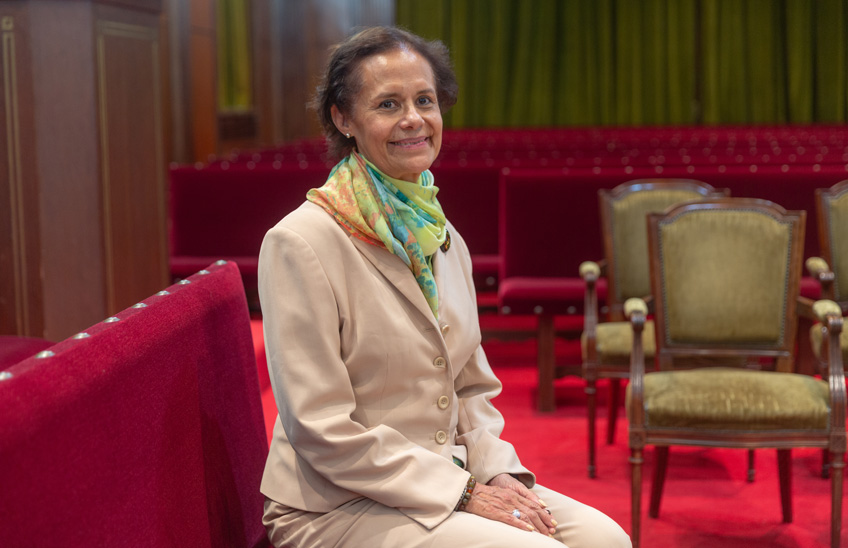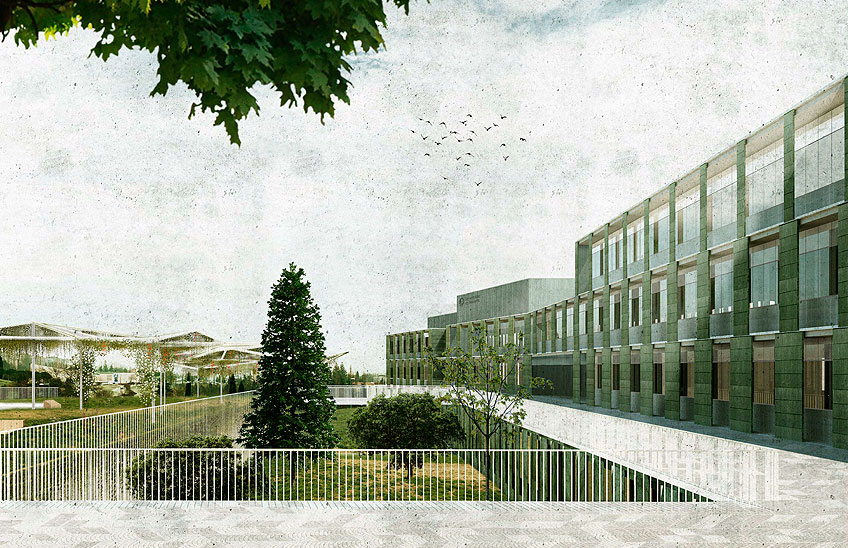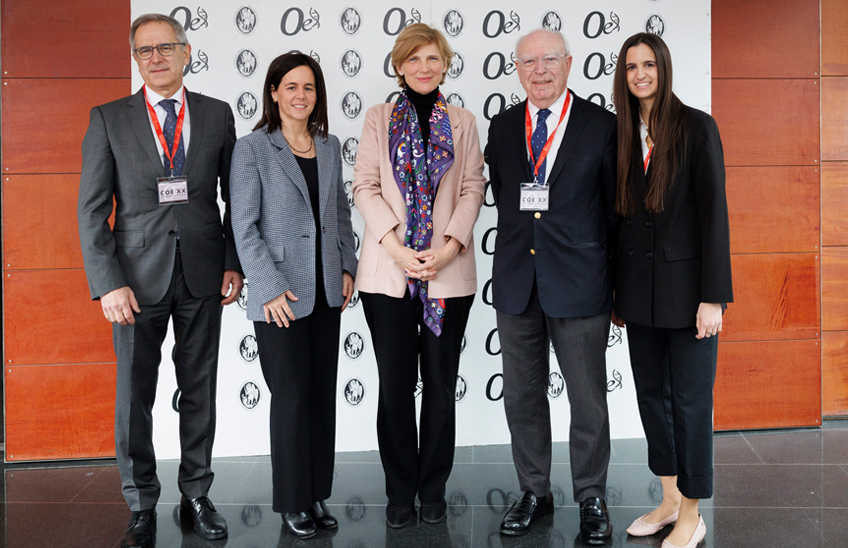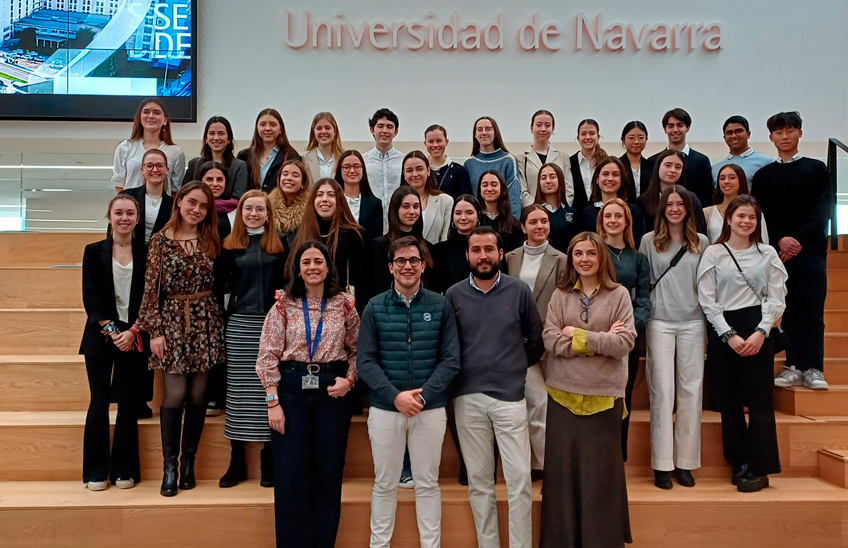"Professor Lejeune was recognized for his scientific stature even by those who differed from his defense of life."
Dr. Pilar Calva, a disciple of Jérôme Lejeune, gave a session at the University on the occasion of the 50th anniversary of the appointment of the French geneticist as honorary doctor

PhotoManuelCastells/
29 | 05 | 2024
"There were parents who waited for months to be able to have a enquiry with him and, when they came out, they confessed that he had not told them anything new, but he had taught them to love their children". This is one of the memories of Professor Jérôme Lejeune that Dr. Pilar Calva, a disciple of his, shared at a colloquium at the University of Navarra on the 50th anniversary of the appointment as honorary doctor of the father of modern Genetics .
In 1958, Professor Lejeune identified the trisomy of the 21st chromosome pair that defines Down syndrome, which opened the way to cytogenetics. His work led him to reflect on the great questions of human life and on the role that medicine and research should play in the defense of the weakest. He was appointed by St. John Paul II as the first president of the Pontifical Academy for Life.
Also a geneticist and bioethics expert, she recounted how her beginnings in the practice of medicine were a far cry from what she learned in Paris in the 1980s, when her mentor, "very liberal," sent her to do her thesis on Genetics with Dr. Lejeune. "At that time, I was hooked on the culture of death, handing out contraceptives in a poor village and was in favor of abortion."
However, his view of Medicine changed at the "humble" laboratory of Professor Lejeune. "He told me that my work of thesis was going to be a work of laboratory, something I never liked because I preferred clinical bioethics. However, he asked me to do it when I was not with him at enquiry... and I ended up being almost like his shadow." Thus, in the months of his two stays in Paris, he became infected with another way of understanding genetic diseases: "I learned more about ethics than about Genetics from his testimony of congruence. The first thing Professor Lejeune did was to dignify patients, whom he followed from birth to death. His aspiration was to seek the science behind what he saw clinically, and that is why he was recognized for his scientific stature even by those who differed from his defense of life."
honorary doctor in 1974
Dr. Pilar Calva's visit to the University of Navarra took place on the 50th anniversary of the appointment of Professor Lejeune as honorary doctor in 1974. Taking advantage of the event, Dr. Calva visited different places of the campus that were significant at that time, such as the classroom Magna, accompanied by Pablo Siegrist, director general of the Jérôme Lejeune Foundation in Spain. She also visited meeting with president María Iraburu, who gave her a photograph as a souvenir of the moment when St. Josemaría Escrivá, then Chancellor of the university, presented Jérôme Lejeune with his appointment submission .
In 2021, Pope Francis declared Dr. Lejeune venerable, thus taking a further step in his canonization process.




